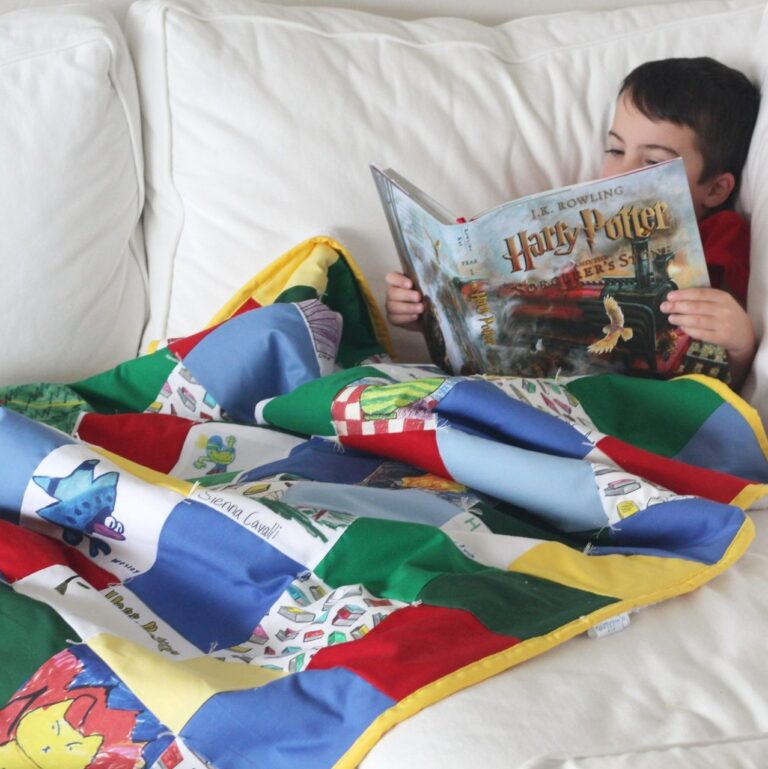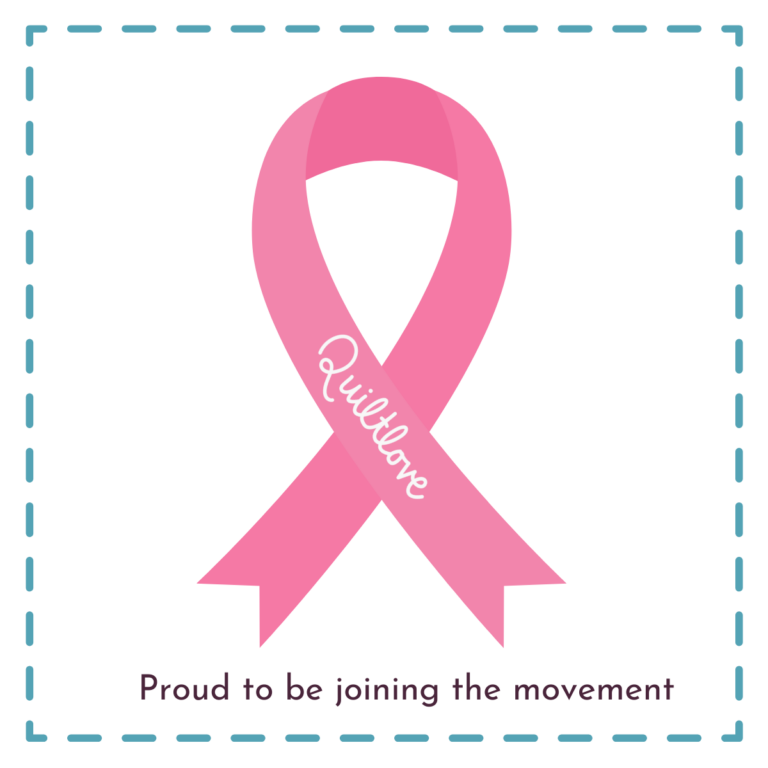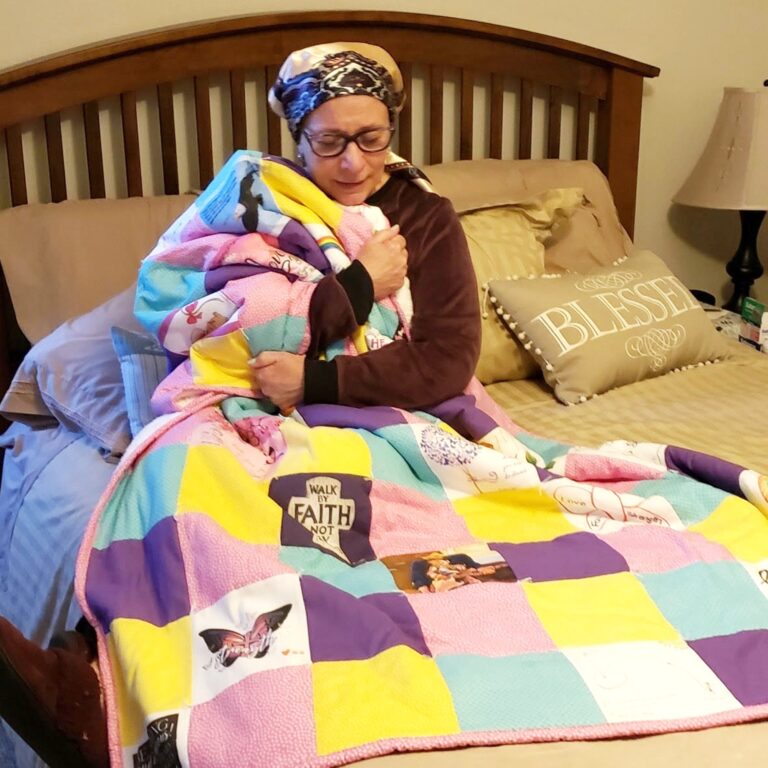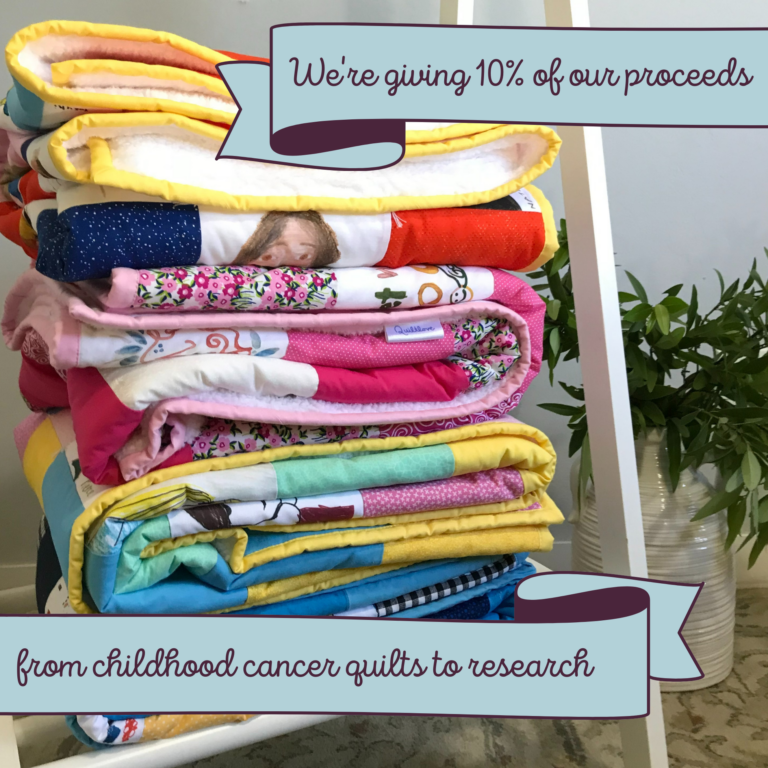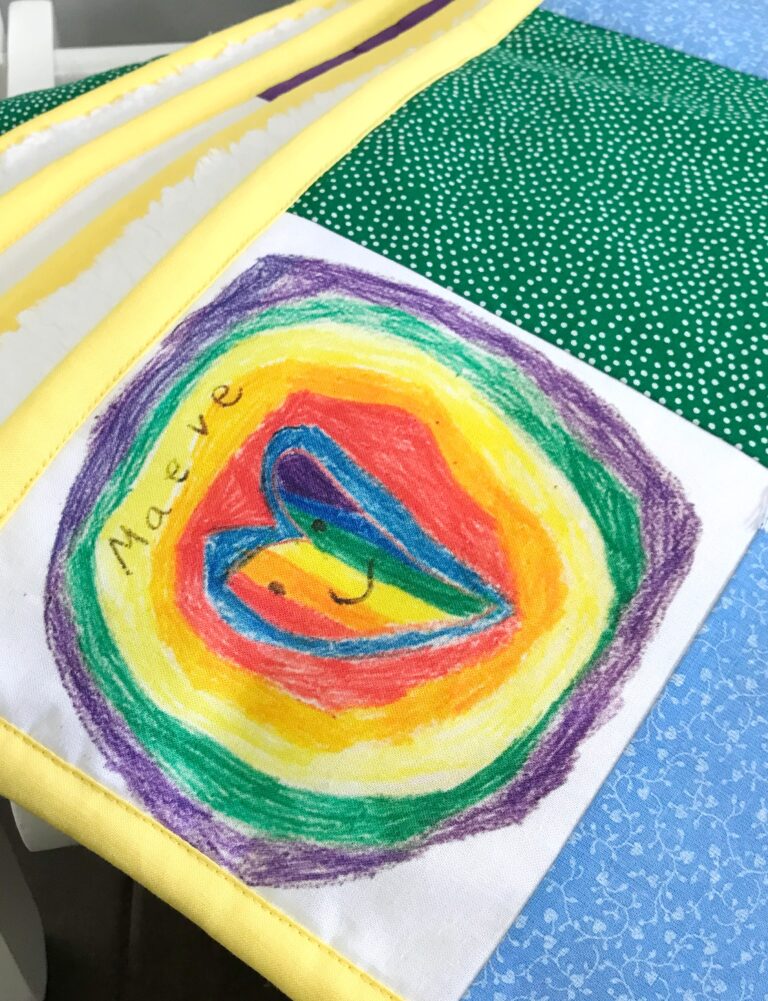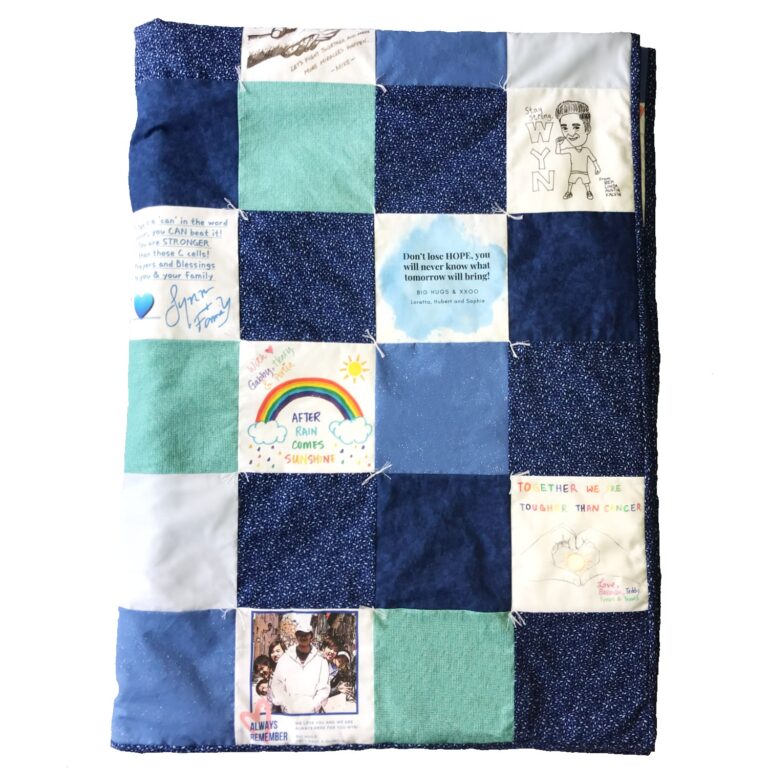This March, in honor of Colorectal Cancer Awareness month, Quiltlove is donating 10% of proceeds from all Colorectal Cancer Support Quilts organized by 3/31 to Fight CRC.
In addition, I am sharing information about colorectal cancer to help raise awareness about this prevalent, yet rarely discussed disease. Think you know the basics about colorectal cancer? Read on to test your awareness!
But first… a disclaimer: I relied heavily on data found on Fight CRC’s and the CDC’s websites when writing this article. Readers should consult their doctors for professional medical guidance.
Colorectal cancer by the numbers
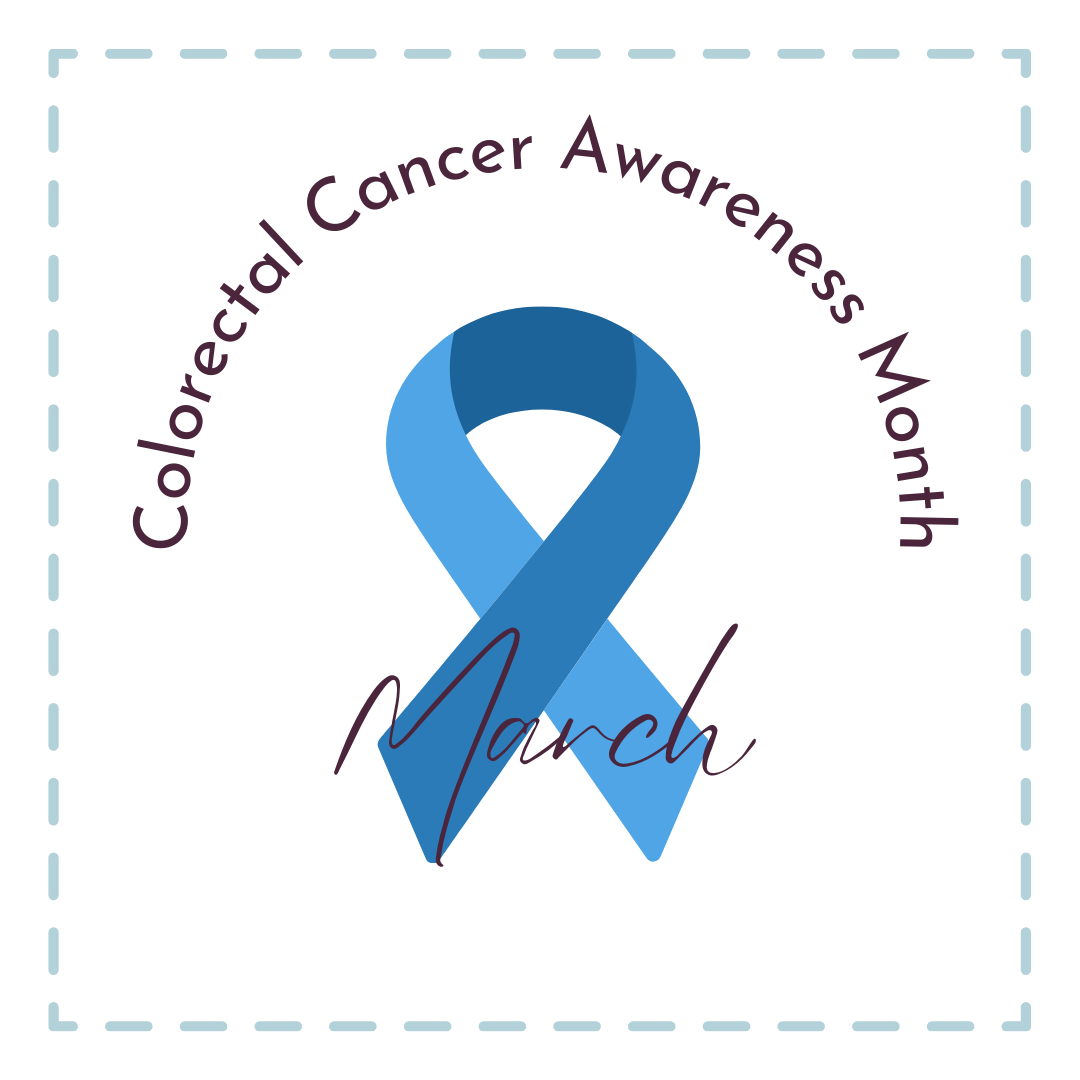
I was shocked to learn that colorectal cancer is the second-leading cause of cancer deaths among men and women combined in the United States, just behind lung and bronchus cancer. In addition, did you know?
- Of all cancers, colorectal cancer will take the most lives of people under 50 by 2030
- 1 in 23 men and 1 in 26 women will be diagnosed with colorectal cancer
- There are more than 1.5 million colorectal cancer survivors in the US
Fight CRC has more statistics on their website here if you want to dig into more numbers or review sources. They even have an uplifting section towards the bottom of this page, if this is already starting to feel heavy.
Screening and risk factors
There is a lot of media coverage about the importance of mammograms for detecting breast cancer and visits to the dermatologist to detect skin cancer. Screening is also important for early detection when it comes to colorectal cancer. In recent years, experts lowered the age at which people at average risk for colorectal cancer should begin screening from 50 to 45. If you need to stop reading to call to schedule your colonoscopy, kudos to you.
Men and women of average risk for colorectal cancer begin screening starting at age 45.
us preventative services task force
According to the CDC, colorectal cancer almost always develops from precancerous polyps (abnormal growths) in the colon or rectum. By screening, doctors are able to find and remove these polyps before they turn into cancer. Screening tests can also find colorectal cancer early, when treatment is most effective.
The CDC estimates that 68% of deaths from colorectal cancer could be avoided if all eligible people got screened. That fact stopped me in my tracks.
People who are at higher risk of developing colorectal cancer should consult their doctor about earlier and more frequent screenings. Which prompts the question, who is at risk for developing colorectal cancer?
Lifestyle risk factors
Your risk of getting colorectal cancer increases as you get older. In addition the following “lifestyle” factors can raise your overall risk for developing colorectal cancer:
- Lack of regular physical activity and exercise
- Overweight and obese
- Little fruit, vegetable, and fiber consumption
- Tobacco use
- Alcohol consumption (more than one drink/day for women and two drinks/day for men)
- A diet high in red meat (beef, pork, lamb), processed meat, and fats
- Consumption of meat prepared via frying, grilling, broiling or other method of high-heat cooking
Additional risk factors
According to Fight CRC, the following additional factors increase your risk of developing colorectal cancer, beyond the lifestyle risks factors listed above
- Family history of colorectal cancer
- Family history of colon polyps
- Personal history of colon polyps, colon cancer, rectal cancer, ovarian cancer, endometrial cancer, or breast cancer
- Personal diagnosis of type 2 diabetes
- Prevalence of a genetic syndrome like Lynch syndrome or FAP in you or a close relative
- Personal diagnosis of inflammatory bowel disorder (IBD) such as ulcerative colitis or Crohn’s Disease
- Previous radiation therapy directed at the abdomen
Ethnic group considerations
Fight CRC reports that Black Americans are about 20% more likely to get colorectal cancer and about 40% more likely to die from it than most other groups. In addition, indigenous communities have higher rates of colorectal cancer than the general population, and Jews of Eastern European descent (Ashkenazi Jews) have one of the highest risks of colorectal cancer of any ethnic group in the world.
Colorectal cancer prevention
While there is no way to prevent colorectal cancer from occurring, you can mitigate your risk through scheduling regular screenings and leading a healthy lifestyle. As with many things, early detection is the name of the game. Think you may be experiencing colorectal cancer symptoms? Learn more here — and again, call your doctor.
I hope you found this post helpful for raising your colorectal cancer awareness. If you were already an expert in this field and you think I missed anything, please let me know. I would love to hear from you. And if you’re 45 or older, go get your colonoscopy!
As always, thanks for reading!
Warmly,

